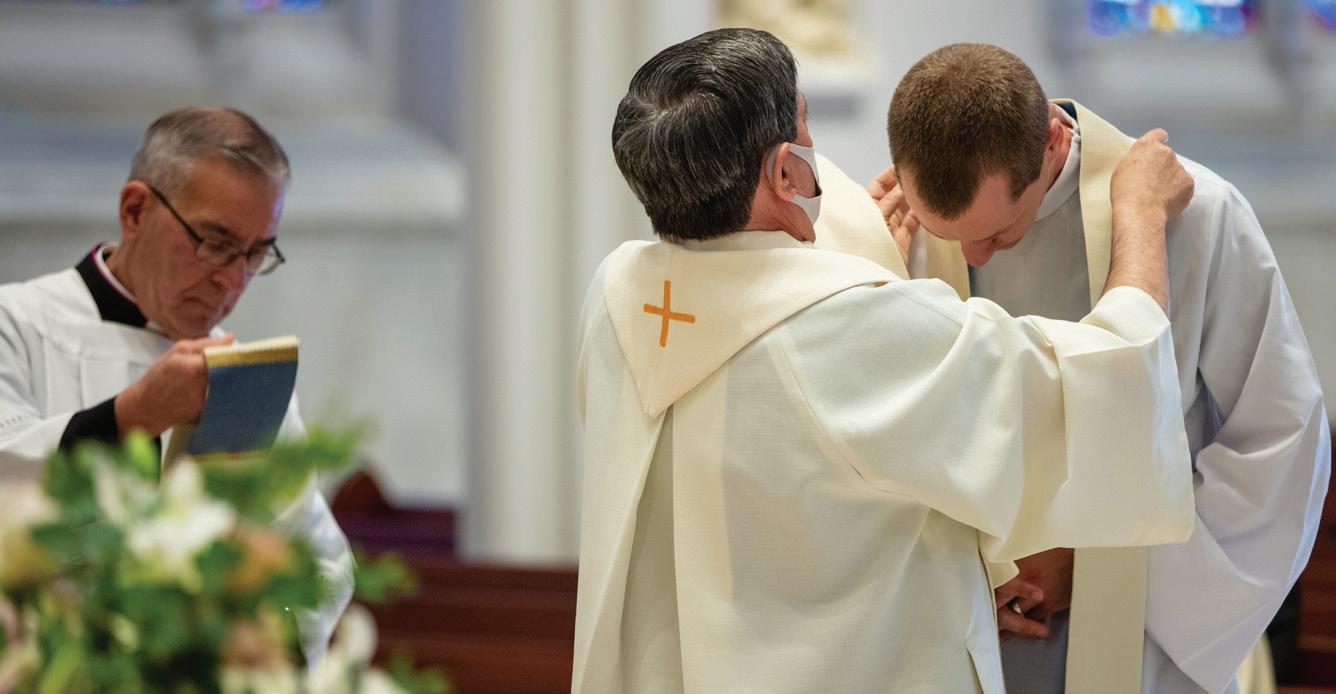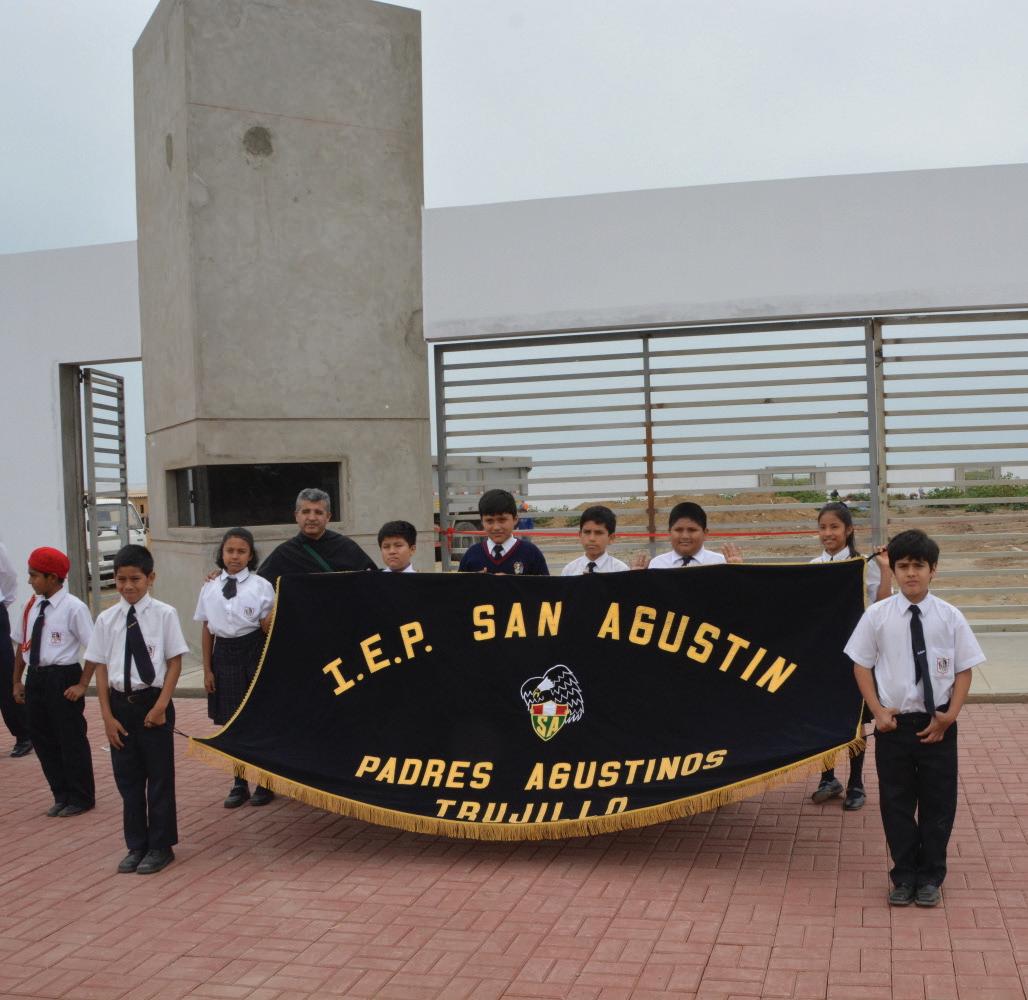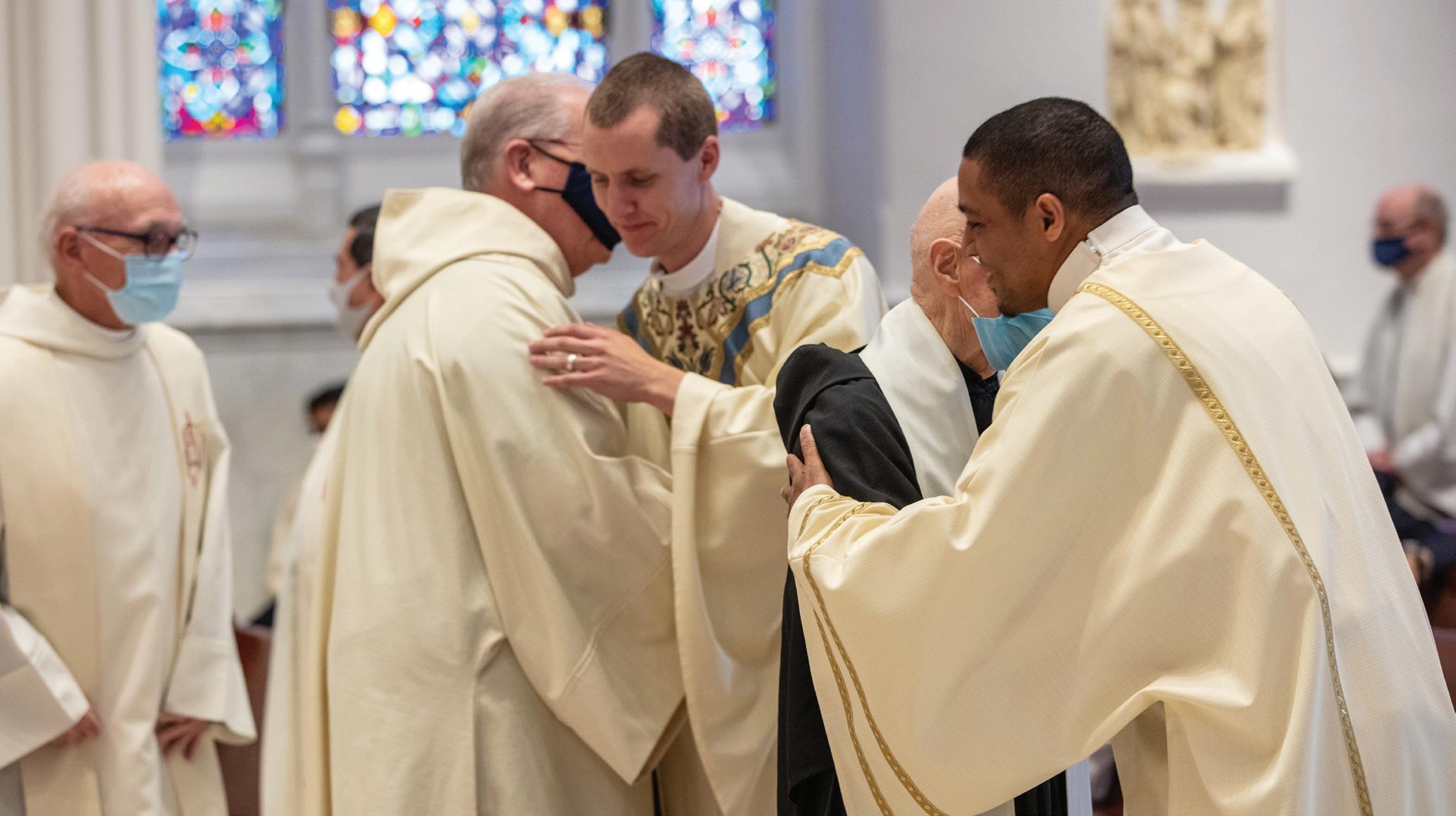
4 minute read
COLUMBUS DAY AND ITALIAN AMERICAN HERITAGE
Columbus Day and Italian-American Heritage A Homily Given by Fr. Tony Pizzo at Casa Italia on October 12, 2020
Our being here today acknowledges that the Italian American community is looking to solidify our validation and affirmation in Chicago. This is part and parcel of our DNA to find our place in our respective communities so as to build up our collective and mutual appreciation for our contributions to this great nation.
Advertisement
The COVID pandemic, along with the of addressing racial equality, has been altering our thinking and behavior. The 2nd Monday of October has been the day when we recognize the accomplishments of Christopher Columbus, who traveled across the Atlantic with the intention to not only discover a new route to the Orient but also to re-ignite the Christian Faith in the Holy Land. Little did he know that he was to encounter cultures unknown to Europeans at that time. The discourse we have used in the past, we have discovered, has been questioned. The current discourse now uses expressions like “conquest,” or a “clash of cultures,” or an “encounter of cultures.” Each expression is going to have its own nuance depending on which cultural and ethnic lens through which one interprets the narrative.
Before an historical narrative is revised, there are steps to be taken to get closer to the truth. With literary and historical critical tools used in scholarly work, like Dr. Carol Delaney’s book, Columbus and the Quest for Jerusalem, revisions should reflect adjusted narratives that include factual research based on historical documents. Revising the narrative must include the factual research that illuminates our knowledge to include all perspectives, the positive as well as the negative. None of us are exempt from making poor choices or decisions even with the best of intentions. We cannot change the past but we can transform the present narrative, our narrative, the Italian American narrative into something more than what we have been given and to which we have been confined. This opens up the door toward dialogue and fruitful conversations that contribute to mutual respect and appreciation.
There is no argument these days, politically, that our world is polarized. A year ago, the Jesuit columnist, Fr. Matt Malone shed light on this topic of what to do with the narrative of Columbus. He says: Polarization does not respect nuance. But without nuance, without some appreciation for the complexities of our history and the reality of the fallen world we live in, our otherwise good intentions become a blunt instrument, more appropriate for brute confrontation than genuine encounter with each other. So, rather than polarize, we are given an opportunity to bridge, educate, and create productive and mutually respectful encounters. Rather than react we respond. Arguing from one side or the other doesn’t accomplish that for which our Italian American culture is known: hospitality, table fellowship, family, and faith. We are left with a rhetorical question of: how can we move beyond the polemics of what “really” happened at that time? My response is Educate do not Eradicate!
In mutually respectful conversations and dialogue, how can we move from fruitless arguments to a richer and more profound understanding of the accomplishments—not only of one man—but the collective accomplishments of so many Italian Americans? Besides, we are not going to find someone who is perfectly altruistic other than Jesus Christ, the reason why we are celebrating this Eucharistic Liturgy, by the way. Yet, we can come pretty close. For instance, today, in NYC, Governor Cuomo is unveiling a statue of Saint Francesca Saveria Cabrini. He says that: Mother Cabrini is the “personification” of Italian American achievement, having founded 67 schools, hospitals and orphanages. She served the poor and the immigrants. She had boundless energy and unlimited capacity and she was a model for female empowerment before the expression was ever used—doing all of this in the late 1800s and early 1900s. She is an important part of my own family narrative as well, because my maternal grandparents used to talk with her when she was pushing the wheel barrel during the construction of the Columbus Extension Hospital, later named Mother Cabrini Hospital. But she, who is a canonized saint, had a questionable side of her character, after she threw out of the hospital my paternal grandfather when he refused to leave my grandmother’s side in her hospital room. He would later say, “how could the Pope canonize ‘una strega?’” No one is exempt from questionable behavior.
In his recent encyclical pastoral letter, Fratelli Tutti, Pope Francis calls us to disrupt our lives and pay attention to the world around us NOW! We cannot change the past but we can certainly enhance our present narrative for future generations. The Holy Father’s urgent message challenges us to look at the world from different perspectives and take action through a genuine encounter with one another. The Holy Father addresses our social relationships by recognizing that love and attention,





